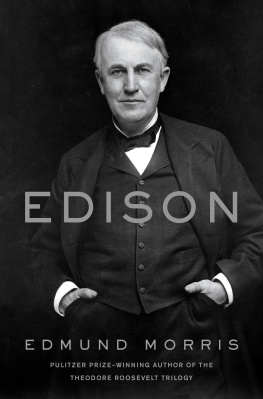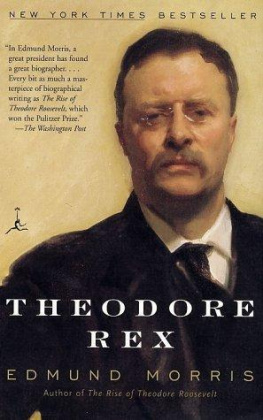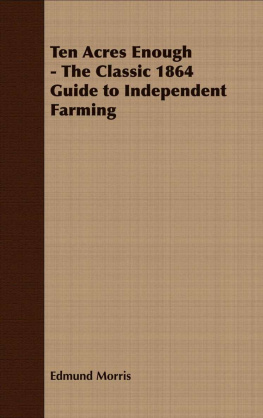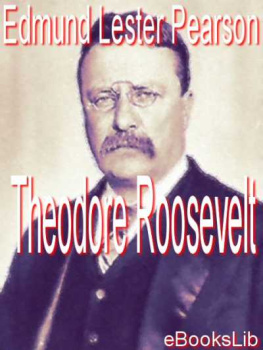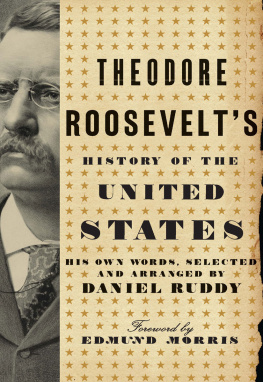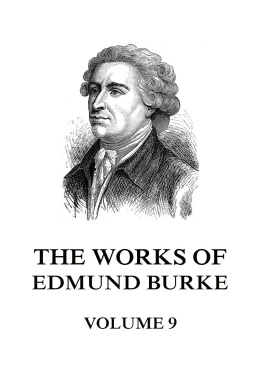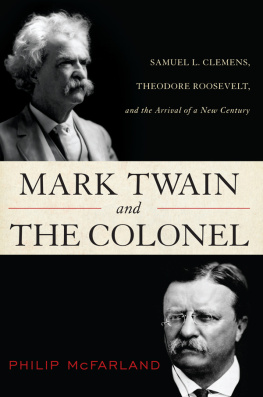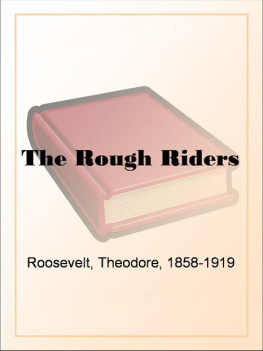Edmund Morris - Colonel Roosevelt
Here you can read online Edmund Morris - Colonel Roosevelt full text of the book (entire story) in english for free. Download pdf and epub, get meaning, cover and reviews about this ebook. year: 2010, publisher: Random House, genre: Detective and thriller. Description of the work, (preface) as well as reviews are available. Best literature library LitArk.com created for fans of good reading and offers a wide selection of genres:
Romance novel
Science fiction
Adventure
Detective
Science
History
Home and family
Prose
Art
Politics
Computer
Non-fiction
Religion
Business
Children
Humor
Choose a favorite category and find really read worthwhile books. Enjoy immersion in the world of imagination, feel the emotions of the characters or learn something new for yourself, make an fascinating discovery.

- Book:Colonel Roosevelt
- Author:
- Publisher:Random House
- Genre:
- Year:2010
- Rating:4 / 5
- Favourites:Add to favourites
- Your mark:
- 80
- 1
- 2
- 3
- 4
- 5
Colonel Roosevelt: summary, description and annotation
We offer to read an annotation, description, summary or preface (depends on what the author of the book "Colonel Roosevelt" wrote himself). If you haven't found the necessary information about the book — write in the comments, we will try to find it.
Colonel Roosevelt — read online for free the complete book (whole text) full work
Below is the text of the book, divided by pages. System saving the place of the last page read, allows you to conveniently read the book "Colonel Roosevelt" online for free, without having to search again every time where you left off. Put a bookmark, and you can go to the page where you finished reading at any time.
Font size:
Interval:
Bookmark:
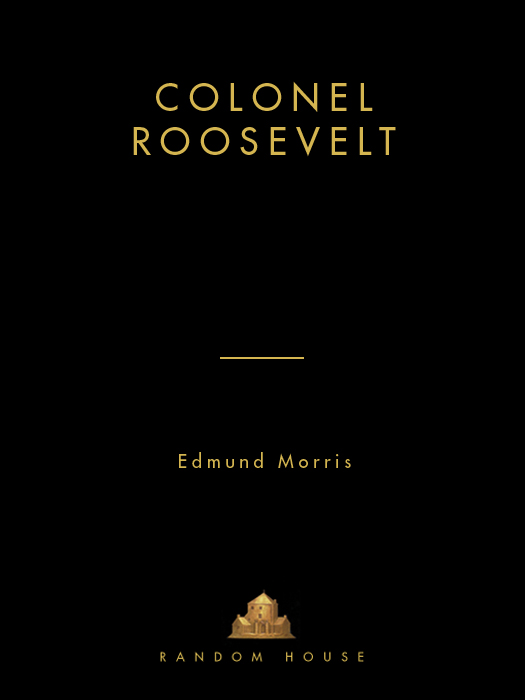
A LSO BY E DMUND M ORRIS
The Rise of Theodore Roosevelt
Dutch: A Memoir of Ronald Reagan
Theodore Rex
Beethoven: The Universal Composer
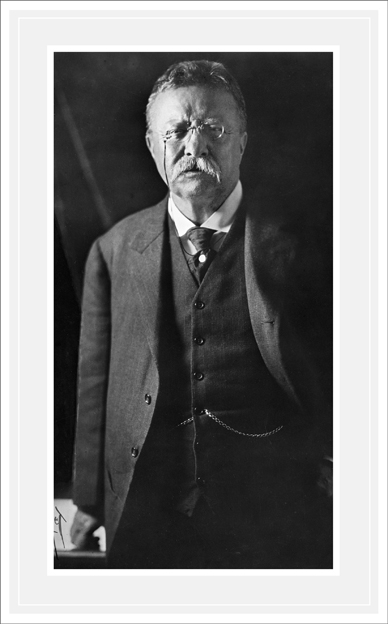
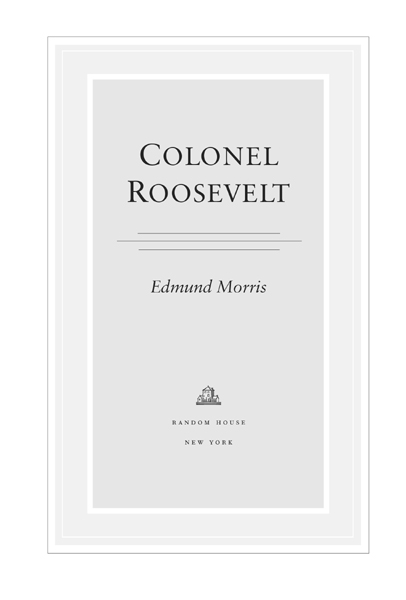
Copyright 2010 by Edmund Morris
All rights reserved.
Published in the United States by Random House, an imprint of The Random House Publishing Group, a division of Random House, Inc., New York.
R ANDOM H OUSE and colophon are registered trademarks of Random House, Inc.
LIBRARY OF CONGRESS CATALOGING-IN-PUBLICATION DATA
Morris, Edmund.
Colonel Roosevelt / Edmund Morris.
p. cm.
Continues: Theodore Rex.
eISBN: 978-0-679-60415-0
1. Roosevelt, Theodore, 18581919. 2. PresidentsUnited StatesBiography. 3. United StatesPolitics and government19091913. 4. United StatesPolitics and government19131921.
I. Morris, Edmund. Theodore Rex. II. Title.
E757.M8825 2010 973.911092dc22 2010005890
[B]
www.atrandom.com
Frontispiece photograph: Theodore Roosevelt by George Moffett, 1914
v3.1
To
Robert Loomis
IT HAS BEEN OBSERVED IN ALL AGES , that the advantages of nature or of fortune have contributed very little to the promotion of happiness; and that those whom the splendour of their rank, or the extent of their capacity, have placed upon the summits of human life, have not often given any just occasion to envy in those who look to them from a lower station; whether it be that apparent superiority incites great designs, and great designs are naturally liable to fatal miscarriages; or that the general lot of mankind is misery, and the misfortunes of those, whose eminence drew upon them an universal attention, have been more carefully recorded, because they were more generally observed, and have in reality been only more conspicuous than those of others, not more frequent, or more severe.
Samuel Johnson, THE LIVES OF THE POETS (1781)
For compatibility with quotations, and stylistic empathy with the period 19091919, most place-names and usages remain unmodernized in this book. Hence, British East Africa for what is now Kenya, Christiania for Oslo, Near East for the Middle East, Mesopotamia for Iraq. Turkey is synonymous with the Ottoman Empire, and England with the United Kingdom.
Racial, personal, and sexual attitudes of the time have not been moderated. Hence, in the African prologue, such words as savage, boy, and native (the last regarded as respectful now, but tending toward disparagement then). And in the chapters proper, crippled, Miss or Mrs. Married or unmarried, women were hardly ever referred to by surname only. The word race, when quoted, usually connotes a national rather than ethnic identity. Although some hyphenated minorities achieved recognition during World War I, the phrase African-American did not challenge Negro as a universal term. The world was divided into the Occident and the Orient, and each hemisphere had its Indians. God was masculine; countries, ships, and cyclonic disturbances feminine. United States and politics were still sometimes employed as plural nouns.
A few archaic capitalizations, such as Government and Nation, have been dropped. Other spellings that have changed only slightly since 1919 are updated without comment: Czar becomes Tsar, Servia, Serbia, and Moslem, Muslim. Punctuation marks are altered for clarity only in transcripts of oral remarks.
The Roosevelt Africa Expedition, 19091910

SITTING ABOVE THE COWCATCHER , on an observation bench rigged for him by British East Africa Railway officials, he feels the thrust of the locomotive pushing him upland from Mombasa, over the edge of the parched Taru plateau. He has the delightful illusion of being transported into the Pleistocene Age.
His own continent recedes to time out of mind. Is it only seven weeks since he was President of the United States? His pocket diary indicates the date is 22 April 1909not that the calendar matters much in this land of perpetual summer, with equal days and nights. Nor will many of its natives be able to read, let alone recognize the name THEODORE ROOSEVELT , prominently stenciled on a gun case riding behind him in the freight car. They are more likely to be impressed by what the case contains: It contrasts with a portable library of about six dozen pocket-size books, ranging from the Apocrypha to the Penses of Pascal, all bound in pigskin and shelved in a custom-made aluminum valise.)
He gazes through eager pince-nez at the prehistoric landscape opening ahead. Waves of bleached grass billow in all directions. Baobab trees, pale gray and oddly elephantine, writhe amid anthills the color of dried blood. Black men and women, naked as the stick figures in cave paintings, stare expressionlessly as he bears down upon them. He will have to get used to that opaque scrutiny wherever he treks in Africa. It is a look that neither absorbs nor reflects, the stone face of savagery.
zoologist in him is distracted by horizon-filling herds of wildebeest, kongoni, waterbuck, impala, and other antelope. Errant zebras have to be tooted off the rails. Long-tailed monkeys curlicue from tree to tree. A dozen giraffes canter alongside in convoy, their tinkertoy awkwardness transformed into undulant motion.
Polish his lenses as he may, he cannot see the Tsavo reserve, this great fragment of the long-buried past of our race, through twentieth-century eyes. The word race, with its possessive pronoun, comes easily to him, connoting not color but culture. Even when culture is at its most primitive, as here, something in him thrills at the prospect of soon being where there is no culture at all.

EITHER THESE FLORA and fauna are reluctantly giving way to him, as an armed intruder from the future, or he is, in a sense, regressing into them, finding again the Dark Continent he embraced as a child, in a copy of David Livingstones Missionary Travels and Researches in South Africa. Before he could read that book, let alone manage its weight, he had dragged it around his fathers Manhattan townhouse, begging adults to tell him the pictures: elephants spiked with assegais; surging, snap-jawed hippos; a lion mauling a white man.
From then on, the rule of tooth and claw in nature seemed as supreme as his own success at becoming one of the governing class.
At puberty he had set out to prove that it was possible for the frailest of small boys, nearly dead at three from asthma and nervous diarrhea, to punish bone and muscle till both grew strong. If an overstrained heart fluttered in protest, it must be ignored.
Doctor, he had said on leaving college, Im going to do all the things you tell me not to do. If Ive got to live the sort of life you have described, I dont care how short it is. Privately, he allowed for sixty years.
Font size:
Interval:
Bookmark:
Similar books «Colonel Roosevelt»
Look at similar books to Colonel Roosevelt. We have selected literature similar in name and meaning in the hope of providing readers with more options to find new, interesting, not yet read works.
Discussion, reviews of the book Colonel Roosevelt and just readers' own opinions. Leave your comments, write what you think about the work, its meaning or the main characters. Specify what exactly you liked and what you didn't like, and why you think so.


